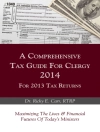KM has been accepted as an integral practice for most organizations — however many are still, understandably, cautious of the investments they make in the current financial environment following the economic downturn. `The measurement of knowledge value is difficult. It is specific to time, context, and the perception of what it is that constitutes a knowledge asset.’ — David Griffiths Measuring the ROI of Knowledge Management 2nd edition aims to explore how leading industry experts prove the value of their KM initiatives and justify investing in them. From outlining the best methods of quantifying the return from KM, to discussing the limitations of an ROI-focused approach, this book looks to present an all-encompassing view of how to best tackle this this matter that is rife with guesswork and uncertainty. Measuring the ROI of Knowledge Management covers topics including: + Understanding the knowledge economy + Knowledge management business case arguments + Using a Knowledge Audit as the basis for determining and driving the ROI of Knowledge Management + The application of Artificial Intelligence to support the value of organizational knowledge and assist the knowledge ROI + Measurement of KM projects — A practical guide for busy people + Believing in organizational progress using data and anecdotes (C6) + The case against ROI for knowledge management + Winning the war by avoiding the battles — Focusing on the I in ROI + An ecological approach to understanding impact in knowledge management practice Measuring the ROI of Knowledge Management brings together the sought-after advice of a wide variety of experts including Stan Garfield, Andrew Gent, David Griffiths, James Gunn, Tim Hawley, John Hovell, James Loft, Helene Russell, and Professor Dave Snowden who provide tools, tips, pragmatic guidance and best courses of action for any organization looking to prove the value of their KM efforts.
Содержание
Executive summary About the authors Chapter 1: Understanding the knowledge economy — Economic value drivers — Develop a competitive advantage — Measuring the value of knowledge Chapter 2: Knowledge management business case arguments — KM — It’s the law/in the contract — Creating new markets — Creating a unique capability — Creating strategic advantage — Improving process productivity/incremental improvement 11 — Lessons learned programmes 13 — Encouraging knowledge sharing 14 — KM in support departments 15 Chapter 3: Using a Knowledge Audit as the basis for determining and driving the ROI of Knowledge Management — An introduction to using a Knowledge Audit — Designing the knowledge audit — K-Audit questions — K-Audit analysis — Determining the business benefits Chapter 4: The application of Artificial Intelligence to support the value of organisational knowledge and assist the knowledge ROI — The current marketplace — Benefit themes — Decision making — The importance of design — AI and business cases — AI adding extra value to knowledge — Summary Chapter 5: Measurement of KM projects — A practical guide for busy people — The value and difficulty of measuring — Where to start with KM measurement — Who: Understanding the audience for the measurement — How: Deciding on the practicalities of measurement — Summary Chapter 6: Believing in organisational progress using data and anecdotes — Social return on investment — Expanding the ROI approach — Conclusion Chapter 7: The case against ROI for knowledge management — The right focus — Literature review Chapter 8: Winning the war by avoiding the battles — Focusing on the I in ROI — Embedded KM — Design to zero — Reuse what exists — DIY KM — Summary Chapter 9: An ecological approach to understanding impact in knowledge management practice — Key scientific insights — New ways of thinking and acting — Conclusion
Об авторе
Dave Snowden Founder and chief scientific officer, Cognitive Edge Stan Garfield Knowledge Management Author, Speaker, and Community Leader James Gunn KM consultant at Tacit Connexions Tim Hawley Associate director, Arup Helene Russell Helene Russell of The Knowledge Business specializes in helping organizations to grow and improve profitability, by helping them to understand and improve their knowledge systems. Helene is the author of the Law Society’s Knowledge Management Handbook and Legal Monitor’s Practical Projects in Legal KM. She teaches open and in-house courses in knowledge management and also offers coaching, mentoring, and advice. She also runs Knowledge Network UK, the only regional knowledge sharing and networking group for law firm KMers in UK. Helene has spoken extensively on KM for Ark, Butterworths, UWE, Bristol Law Society, Allice, and at Knowledge Network UK, and has written regularly for Managing Partner Magazine. After a decade as a solicitor with a major regional firm specializing in clinical negligence defense litigation, eight years in knowledge management and having recently obtained an MBA with distinction, she has a unique, deep understanding of how knowledge flows helps law firms and professional services organizations.












